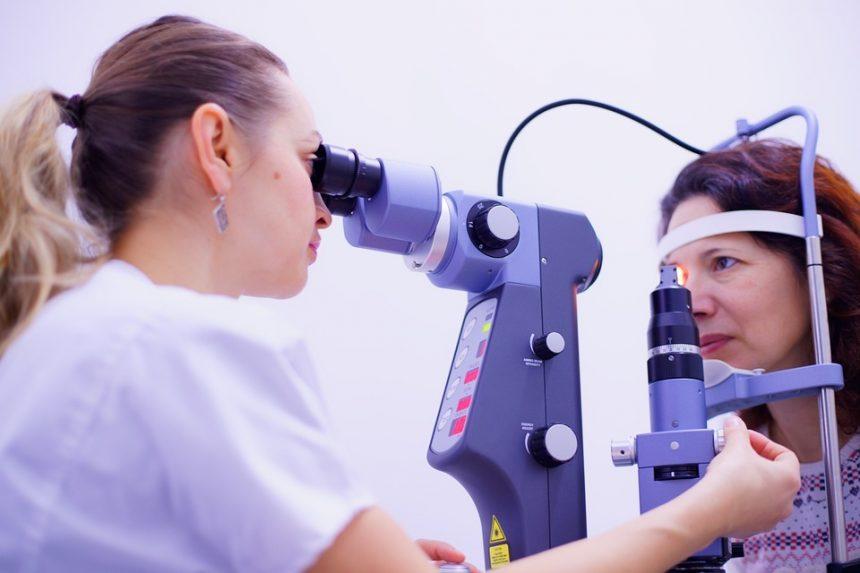Your eyes are a precious asset, and it’s important to protect them in order to maintain good vision and healthy eyesight. Fortunately, there are a few simple steps you can take to ensure that your eyes remain healthy and functioning properly. In this article, we will discuss 10 simple eye care tips that everyone should know in order to protect their eyesight and keep their eyes healthy. From practicing proper hygiene to wearing sunglasses and visiting your eye doctor regularly, these 10 tips are easy to implement and can have a big impact on your eye health. So, if you want to ensure that your vision remains clear and your eyes remain healthy, read on to learn more about how you can protect your eyesight!
1. Practice good hygiene
As strange as it may sound, hygiene can have a big impact on your eye health. Maintaining good hygiene around your eyes will help prevent eye infections, bacterial build-up, and other conditions that can damage your eyes and cause sight impairment. For starters, make sure to wash your hands regularly. This will help prevent bacterial and fungal infections that could lead to dry eyes, watery eyes, or even pink eye. Additionally, make sure to wash your face and remove make-up before going to bed each night. Excess make-up can cause eye irritation and lead to bacterial build-up, increasing your risk of eye infections. You should also regularly clean your eye area. This includes cleaning the skin around your eyes, as well as rinsing your eyes with water. Make sure to use clean and lint-free cloths or towels each time you clean your face to reduce bacterial build-up. When cleaning your eyes, use lukewarm water and avoid using soap, which can cause irritation.
2. Wear sunglasses
While many people view sunglasses as purely a fashion accessory or a way to look cool, they can actually provide a number of health benefits. Wearing sunglasses regularly can actually protect your eyes from the sun’s harmful UV rays. UV light can contribute to the development of macular degeneration, cataracts, and other eye diseases. Additionally, UV light can cause inflammation and eye damage, which can lead to impaired vision. Wearing sunglasses regularly can help reduce your risk of developing eye diseases, reduce eye irritation, and protect your eyes from sun damage. UV blocking sunglasses can help to reduce your risk of eye diseases and improve your eye health. You can visit your eye doctor if you have questions about which sunglasses are best for your eyes.
3. Get regular eye exams
Visiting your eye doctor regularly is one of the best ways to maintain good eye health and protect your eyesight. During your regular eye exams, your eye doctor will be able to detect any issues or eye conditions early, which will make treatment easier and help reduce the risk of vision loss. Early detection can also prevent eye conditions from worsening and lead to better long-term outcomes. Additionally, regular eye exams can allow your eye doctor to determine if you need your prescription adjusted. Having your prescription checked on a regular basis can ensure that your eyes are receiving the right amount of focus and help prevent worsening vision issues. Note that eye exams vary from state-to-state. While some states require an eye exam every two years, others may require eye exams every one or two years. You can ask your eye doctor for more information about the eye exam requirements in your area.
4. Exercise your eyes
Eye exercises aren’t just for people who are experiencing vision issues. Exercising your eyes regularly can help to improve your eye health and reduce your risk of vision loss. Eye exercises can range from simple tasks like reading in different environments (i.e. while lying down, sitting, etc.) to more advanced exercises. You can find a variety of eye exercises online and in books to help improve your eye health and maintain good eye health. Eye exercises are typically used to treat issues like nearsightedness, farsightedness, eye strain, dry eyes, and other issues. While eye exercises will not treat serious eye conditions like macular degeneration, they can help to reduce your risk of developing these conditions and slow their progression. Additionally, eye exercises can improve your eye health by improving blood flow to your eyes, strengthening your eye muscles, and improving your eye coordination.
5. Eat a healthy diet
Eating a healthy diet is important for your overall health, and it can also help to improve your eye health. A healthy diet can promote eye health by reducing your risk of developing diseases like diabetes, which can lead to eye issues. Additionally, a healthy diet will provide your eyes with the vitamins, minerals, and nutrients that they need for proper function. Eating a diet rich in fruits, vegetables, and other natural foods can help to protect your eyes from vision-threatening conditions like macular degeneration and cataracts. Additionally, certain foods can help promote good eye health. Eating foods rich in vitamins A, C, E, and omega-3 fatty acids can help to protect your eyes from diseases and promote healthy eyesight.
6. Avoid smoking
Smoking has been linked to a number of eye conditions and diseases, including cataracts, macular degeneration, and diabetic retinopathy. Cigarette smoke can cause inflammation in your eyes, which can lead to vision loss, particularly as you age. Additionally, smoking can affect your eye health in other ways. Smoking can increase your risk of developing dry eyes, can cause your eyes to look less bright, and can reduce your eye function. Dry eyes can lead to corneal damage, astigmatism, and other issues that can affect your vision. And reduced eye function can cause blurred vision, which can make it difficult to drive or perform other activities that require sharp vision.
7. Wear protective eyewear
Certain occupations, like construction, law enforcement, and other work that involves frequent use of tools or dangerous situations can be particularly demanding on your eyes. In these situations, it’s critical to wear protective eyewear. Wearing protective goggles or eyewear can reduce your risk of eye injuries like corneal abrasions, retinal detachment, and other serious eye injuries. Protective eyewear can help protect your eyes from debris, dust, and other particles that can cause serious eye issues. Additionally, certain types of protective eyewear can also protect against UV light and help to reduce your risk of macular degeneration. Make sure to wear eye protection whenever you are doing work that could impact your eyes.
8. Rest your eyes
Eye strain is a common health condition that can be caused by a number of different factors. Working in front of a computer, reading in poor lighting, watching TV for long periods of time, and more can all contribute to eye strain. Eye strain can lead to dry eyes, blurred vision, and other issues. Fortunately, there are a few ways that you can prevent or reduce eye strain. Make sure to work in a well-lit area and use a computer screen filter to reduce eye strain caused by computer screens. Avoid using electronics before bed, as this can lead to eye strain while you sleep. Make sure to use proper reading techniques to reduce eye strain caused by reading.
9. Limit screen time
While technology can be useful, frequent screen time has been linked to eye strain and eye damage. Using electronic devices can cause your eyes to become dry and tired, and staring at screens for long periods of time has even been linked to macular degeneration. In order to reduce your risk of eye damage, make sure to avoid holding your phone too close to your face and take frequent breaks from looking at screens. Wearing proper eyewear can also help to protect your eyes from screen damage. Some research has also suggested that looking directly at screens for long periods of time is linked to the development of myopia. However, the link between myopia and screen time is still being studied, and more research is needed before any conclusions can be made.
10. Seek medical attention if necessary
Eye health issues can quickly worsen and lead to vision impairment if they aren’t treated early. If you notice changes in your vision, dryness in your eyes, or other eye health issues, don’t ignore them – visit your eye doctor as soon as possible. Early treatment has a higher chance of success, and you can prevent vision loss by seeking medical attention as soon as you notice eye changes. In many cases, treatment for eye conditions is relatively inexpensive and easy to administer, and it can help to prevent vision loss. Additionally, regular check-ups can help to identify potential issues before they become serious, which will make treatment easier and result in better long-term outcomes. If you have any questions or concerns about your eye health, make sure to visit your eye doctor as soon as possible.








